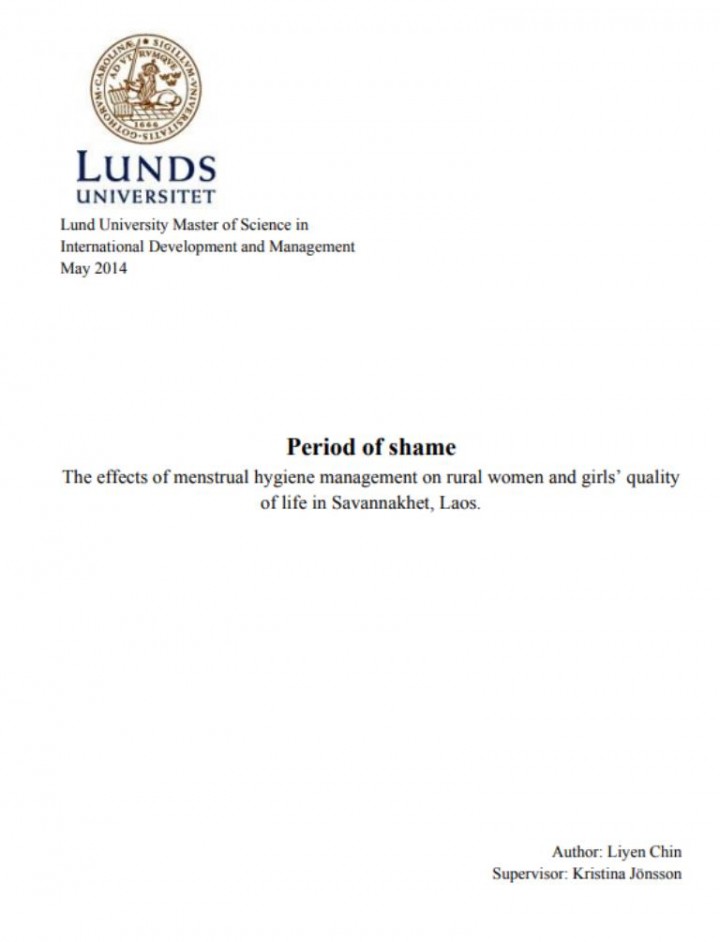Period of shame The effects of menstrual hygiene management on rural women and girls’ quality of life in Savannakhet, Laos Chin, L. (2014)
The purpose of this thesis was to investigate how rural women and girls’ menstrual hygiene
management (MHM) affects their life-quality and performance in everyday life. The thesis
analysed the opportunities, abilities and motivation they had in performing MHM and how it
affected their social and economical opportunities. From this, conclusions were drawn on how
MHM affects their life-quality. A concurrent mixed methods approach was implemented
where qualitative data was gathered through group interviews and quantitative data through
closed questionnaires. The results were analysed through a combination of the FOAMframework
and Sen’s capabilities approach.
The results showed that not all women had sufficient access to toilets, water, panties and
sanitary pads. Together with an absence in social support and cultural norms that perceive
menstruation as taboo, these factors had negative consequences on their life-quality. It
restricted them in their access to a good health, education and income-generating activities.
The effects are however subjective; not all women saw their practice as problematic. The
results merely showed that not all women had access in exercising their capabilities, which
could lead to a decreased level of life-quality. Individuals as well as societies could thus
benefit in taking MHM into consideration in the development discourse.
Bibliographic information
Chin, L. (2014). Period of shame The effects of menstrual hygiene management on rural women and girls’ quality of life in Savannakhet, Laos Master of Science in International Development and Management, Lund University, Sweden
Filter / Tags
RuralEnglishMenstrual Health and Hygiene (MHH)

